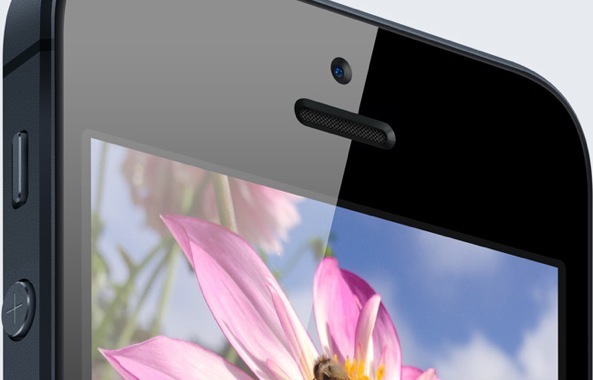Normally, Apple would just continue pushing its iPhone using same old marketing tricks, which entail heavy advertising, the power of the Apple brand and lots of free press. But heightened competition, slowing smartphone sales and ongoing uncertainty about the economy presumably prompted Tim Cook and his leadership team to implement changes to how the firm goes about selling smartphones.
Sales tactics changes on the agenda reportedly include a trade-in program, improvements to price-matching policies internationally and promotions akin to Apple’s Back to School program. Jump past the fold for the full breakdown…
Apple’s chief executive Tim Cook along with SVP of Internet Software and Services Eddy Cue and SVP of Software Engineering Craig Federighi discussed iPhone sales push with the company’s retail store leadership for approximately three hours during a summit at San Francisco’s Fort Mason on June 27, reports the well-informed Mark Gurman of 9to5Mac.
Dissatisfied that 80 percent of all iPhones are not purchased from Apple Stores, Cook underscored that more incentives for customers and Apple Stores will be introduced at Apple’s July 28 quarterly meetings for Retail.
The iPhone is Apple’s central “gateway product” to other devices like iPads and Macs, so it is critical that the Apple smartphone is sold via an Apple Store so new customers are immediately exposed to iPads, Macs and other devices on the showroom floor.
Even though 80% of iPhones are not sold at Apple Stores, 50% of all serviced iPhones are troubleshooted, repaired, or replaced at Apple Store Genius Bars. Cook reportedly hinted that he would like those numbers to be more in line.
The new Back to School promotion ($50 iTunes Gift Cards on qualifying iPhone purchases for students) is one facet of Apple’s iPhone sales push.
Gurman says in-store trade-in program is also being considered with “a large, promoted presence in Apple Stores”, as Bloomberg asserted last month. Customers could be encouraged to upgrade a damaged older iPhone model to a refurbished iPhone 5, according to one source.
Other elements of the strategy reportedly include improvements to price-matching policies internationally, major store openings in Europe, including a new store in Italy, and aggressive iOS 7 promotion later this year in light of the importance of the company’s mobile operating system to its fortunes.
The firm recently tested a new approach to a great success in countries like India, where Android cheapos have eroded its market standing to a single-digit figure. If I were Apple, I’d introduce installment payments across all brick-and-mortar Apple Stores.
A cash-back deal in India where consumers use American Express to purchase a qualifying iPhone also has lots of potential. And if interest-free payment plans work in China, why not roll them out everywhere?
For what it’s worth, Apple is thought to have partnered up with Barclays and T-Mobile USA to offer 24 months no interest when buying a new iPhone on T-Mobile at Apple Stores.
As you can see, there’s lots of untapped potential to boost sales internationally should Apple be willing to relax its strict approach to selling iPhones.
Also, Apple’s Retail Management has been instructed “to consistently note to employees why they are critical and appreciated”.
Last, but not the least, one person apparently said to expect “an army of new products this Fall.”
Whether or not the cryptic comment alludes to new gizmos already in the pipeline – like the upcoming iPad 5, iPhone 5S, fourth-generation Apple TV, a next-gen Mac Pro and refreshed MacBook Pros – remains to be seen.
Outside these upgrades, rumors have persisted for a while now that Apple has been readying both a wristwatch and a less-costly iPhone variant and some analysts still expect the company to launch a standalone television set.
